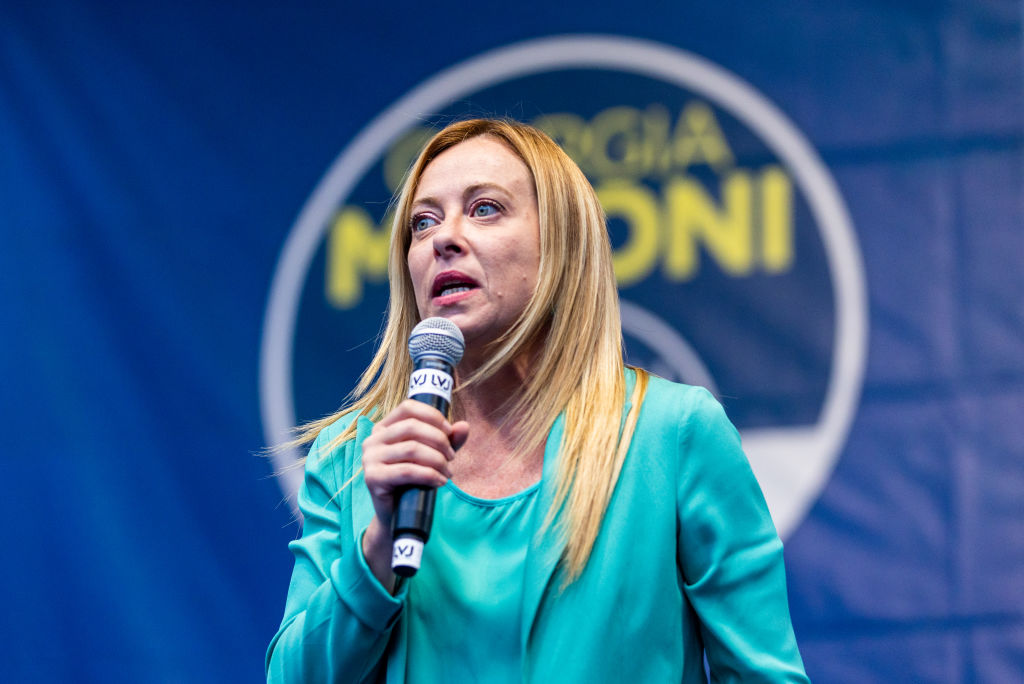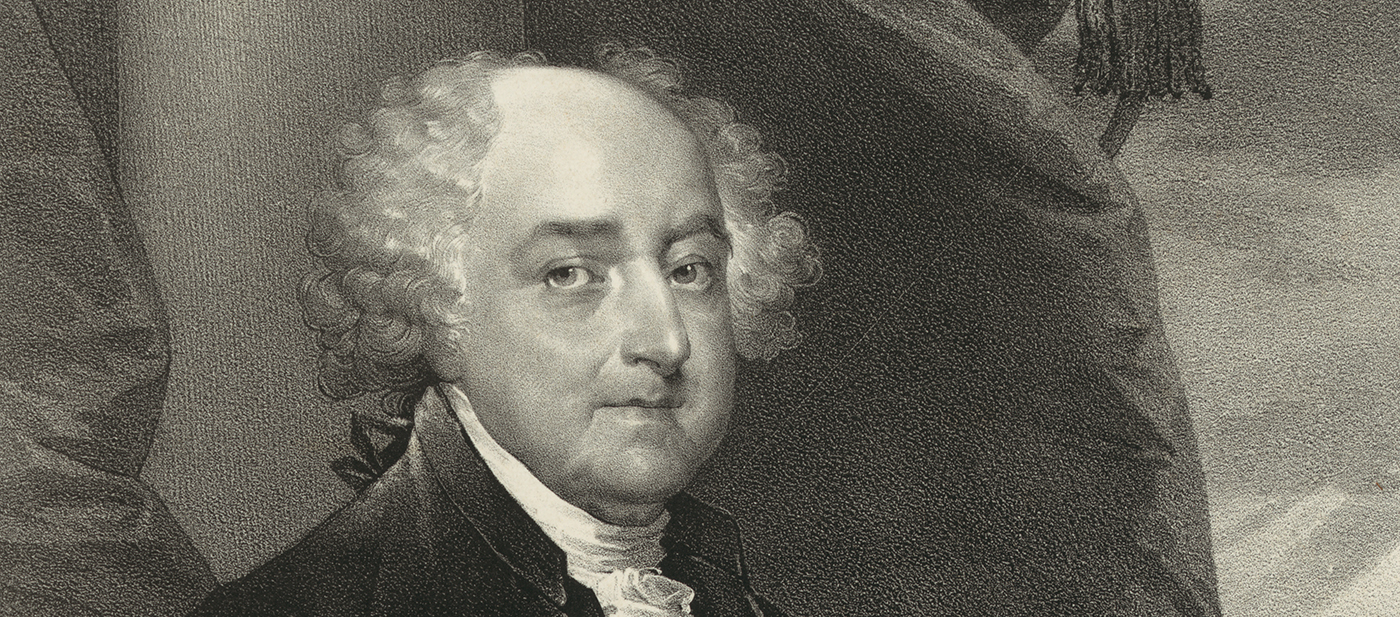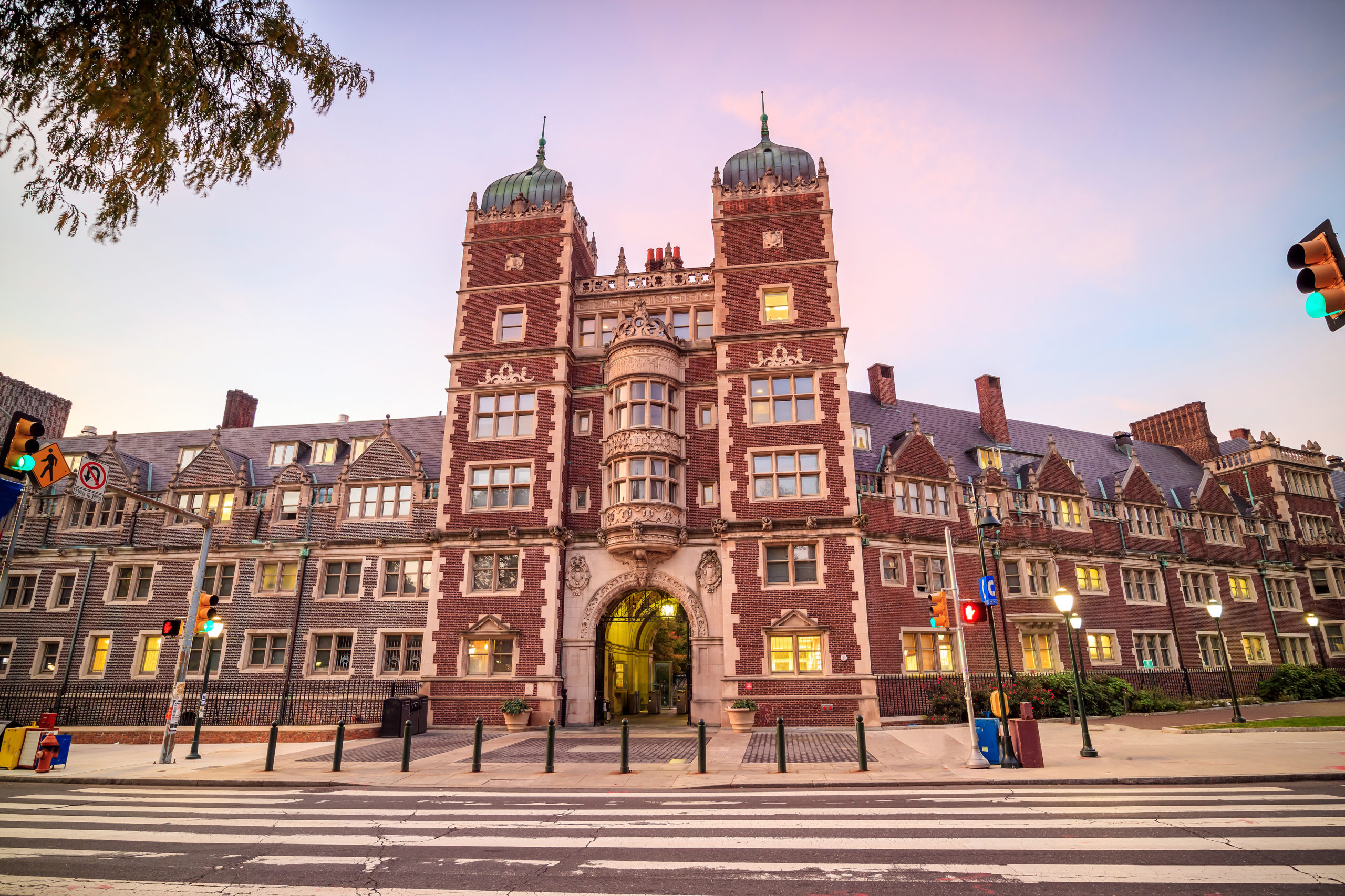A response to Adrian Vermeule
The Specter of “Fascism”

Hypocrite technocrats denounce their opponents as anti-democratic extremists while eviscerating self-determination.
A specter haunts the Western world today and it is not that of fascism, semi- or otherwise, as President Biden among others demagogically claims. Fascism is a circumscribed historical phenomenon, most distinctive to Italy in the period 1922 to 1945. It combined authoritarianism marked by the cult of the Duce or leader, radical nationalism and neo-pagan idolatry, militarism, and economic corporatism. In blustery speeches in the late 1920s, Benito Mussolini proclaimed the necessity of a “totalitarian” party-state, although in practice he was forced to tolerate both the existence of the Italian monarchy and a Catholic Church under Pope Pius XI (the Roman pontiff from 1922 until 1939) that vigorously challenged the totalitarian pretensions of the fascist state.
The Catholic authoritarian regimes of Salazar in Portugal after 1932 and of Franco in Spain after 1939 were more traditionalist than fascist, authoritarian while self-consciously opposed to neo-pagan totalitarianism. Nor should fascism be conflated with National Socialism. Antisemitism was never part of the original ideological design of fascism and Jews were for a long time welcome as members of the Fascist party. But Mussolini’s regime became considerably nastier after 1936, in the wake of the Italian aggression against Ethiopia, the establishment of the Rome/Berlin/Tokyo Axis, and the adoption of increasingly draconian anti-Jewish laws alien to an earlier fascism. In his final days, Mussolini presided over the Republic of Salò in the north of Italy, a crudely repressive totalitarian state that was little more than a puppet of Nazi Germany. The Duce would meet his end on April 28, 1945, when he and his mistress were executed by anti-fascist partisans and their bodies hung upside down from the roof of an Esso gas station in Milan. It was a deservedly inglorious end for Mussolini and his newfangled dream of a restored Roman empire in fascist form.
What does any of this have to do with the victory of a right-wing coalition in Italy’s parliamentary election of September 25, 2022? Everything if one reads the New York Times, Le Monde, and the Guardian and little or nothing if one remains attentive to facts. Giorgia Meloni, the head of the Brothers of Italy party, the lead party in the victorious right-wing coalition, is an Italian patriot, a populist of sorts, and a vehement critic of the nonstop illegal immigration that is transforming the social fabric of Italy and Europe. She is also a social conservative who likes to quote J.R.R. Tolkien and the late British conservative philosopher Roger Scruton, hardly avatars of fascism in any form. Her party is pro-life, and opposed to unaccountable technocrats such as Italian Prime Minister Mario Draghi, who are uncritically beholden to financial elites and a “European” consensus that has largely divorced “democratic values” from the consent of the governed.
Her party is a very distant descendant of the postwar neo-fascist Italian Social Movement and cannot remotely be accused of being “fascist” or even “post-fascist” in any meaningful sense of the term. Already in the 1980s, Gianfranco Fini, a former deputy prime minister of Italy, had transformed the National Alliance, a successor to the Italian Social Movement, into a more or less mainstream conservative party. It should be added that one of the influential wings of the Democratic party, the lead party of the Italian center-left, has roots in the Italian Communist party, although this seems not to trouble Meloni’s critics, despite their pretense to grave historical perspective. When Ursula von der Leyen, the President of the European Commission, warns Italians that they risk being punished (just like Poland or Hungary) for turning to a right-wing coalition in a democratic election, this has nothing to do with thwarting a fascist takeover in Italy. Rather, it is a reaffirmation of the hegemony of a postnational, postpolitical “Europe,” and its commitment to thwarting any efforts, however feeble or ineffectual, to assert self-governance or national self-determination.
In a significant article published in National Affairs in the summer of 2017 (“Populist Demagogy and the Fanaticism of the Center”) the French political philosopher Pierre Manent brilliantly captured the dynamic at work in this effort to punish any political movement deemed excessively “populist.” There is indeed always a danger of populist demagogy, of a truly “irresponsible” revolt against imperfect democratic norms. But “centrist” European elites show open contempt for any challenge to the abstract rules that are said to constitute European democracy, even if they are not consented to by European peoples. In addition, European elites are suspicious of the national framework that gives life and substance to democratic politics. They see in it only nationalism, reaction and even insipient fascism. They aspire to what Manent calls a “pure democracy, a democracy without the demos, a democracy without the nation, nonnational or postnational.” This postnational, rule-driven democracy is both bureaucratically heavy-handed and contemptuous of traditional or customary morality. Its ideology centers around imposing an imperial and imperious conception of human rights on all those institutions and associations of civil society that resist postmodern relativism, sentimental humanitarianism, and the ideology of unencumbered human rights.
As the Italian Catholic commentator Roberto de Mattei recently pointed out in The Catholic Thing, there is something haughty and undemocratic in French Prime Minister Elisabeth Borne’s proclamation that France will keep a close eye on the fate of “abortion rights” in an Italy governed by Giorgia Meloni. When did abortion-on-demand become a fundamental “democratic value,” central to the fight against resurgent fascism? Do these recently discovered rights trump all democratic deliberation, all democratic accountability? Has Italy no freedom to determine its own fate?
In his incendiary speech at Independence Hall on September 1, 2022, President Joe Biden also linked the defense of abortion (and same-sex marriage) with the defense of “democracy” against “extremism,” or what he denounced several days before as “semi-fascism.” Biden links the teachings of his own Church on vital moral issues to dangerous extremism, despite his self-proclaimed piety marked by what he himself calls “the clutching to rosaries.” Whatever war Prime Minister Borne and President Biden are fighting, it has nothing to do with a genuine struggle against totalitarian extremism. The thought that free peoples might see some link between self-government and the defense of authoritative institutions (families, churches, and more or less customary morality) is unthinkable for the contemporary Left. As Pierre Manent points out in his aforementioned article, their demagoguery, their fanaticism, however “centrist” or “respectable,” humiliates ordinary people and feeds into the danger of an impolitic populism or a desperate nationalism. But guardians of democracy these censorious elites are not. And when the president of the United States insists that his predecessor was an “illegitimate” president imposed on the American people by Russian machinations (for which there is no evidence), his own warnings against “election denialism” appear less than principled, to say the least.
We now come to the double standard par excellence. The same commentators who see “semi-fascism” all around them, are remarkably complacent about ex-Communists assuming power in modern European states. For a long time now, governing Western elites have preferred ex-Communists in power in East-Central European states to Christian or national parties who pose no threat to public liberties. The entire European elite (and the likes of Anne Applebaum, too) rooted earlier this year for an opposition coalition in Hungary fronted by an ineffectual conservative Catholic mayor, but in fact dominated by the once neo-Nazi and still antisemitic Jobbik party, and the former Communists. It is hard to see how these parties represent “liberal values” in any respect. Yet as the Polish philosopher and statesman Ryszard Legutko pointed out in his important 2016 book, The Demon in Democracy: Totalitarian Temptations in Free Societies, the most influential Western elites feel considerably more comfortable with ex-Communists in power than they do with anti-Communists, who are wary of the postmodern evisceration of patriotic, moral, and religious attachments. The Communists and the postmodern human rights lobby are equally suspicious of “quaint” references to “truth, good, and beauty.” They believe History is on the side of those who want to leave the old verities behind. They support a version of democracy that has everything to do with the erosion of old civic and moral bonds and attachments and little to do with self-government per se.
As Legutko points out in his thoughtful and provocative book, it is considered to be “reactionary” or even “fascist,” and certainly illiberal and “extremist,” to defend truth as a goal of education, beauty as an aim of art, fidelity as the goal of marriage, and love of country as an essential element of citizenship. Inclusion (understood perversely or ideologically), sexual liberation, and political correctness, in contrast, are at the heart of a new form of democratic “correctness.” If “reproductive rights” and gender ideology are truly the sine qua non of democracy, then we have surely left Western civilization behind. As Legutko observes, even the “conservatism” or conservative liberalism of Aristotle, Burke, Tocqueville, and Ortega y Gasset, wise and moderate voices all, become radically suspect under the new dispensation. The same could be said of the American Founders. Democracy so understood is hardly a friend of liberty and human dignity, not to mention self-government. Democracy without a demos is no democracy at all.
Antifascism has little to do with the defense of democracy rightly understood, or the struggle against anything that is recognizably fascist. We should not forget that Stalin and Stalinists specialized in denouncing as fascist everyone who opposed political correctness as proclaimed by their totalitarian ideology or the Machiavellian requirements of the moment. As Paul Gottfried argues in his fine recent book Antifascism: The Course of a Crusade, antifascism has become little more than the opium of intellectuals who cannot abide democracy marked by due respect for the good sense of the people and the salutary inheritance of Western civilization. Let not good people be taken in by such shameless demagoguery.
The American Mind presents a range of perspectives. Views are writers’ own and do not necessarily represent those of The Claremont Institute.
The American Mind is a publication of the Claremont Institute, a non-profit 501(c)(3) organization, dedicated to restoring the principles of the American Founding to their rightful, preeminent authority in our national life. Interested in supporting our work? Gifts to the Claremont Institute are tax-deductible.
This election is about the integrity of our nation and the security of our freedoms.
The University of Pennsylvania Law School is gunning to expel a heterodox professor.



